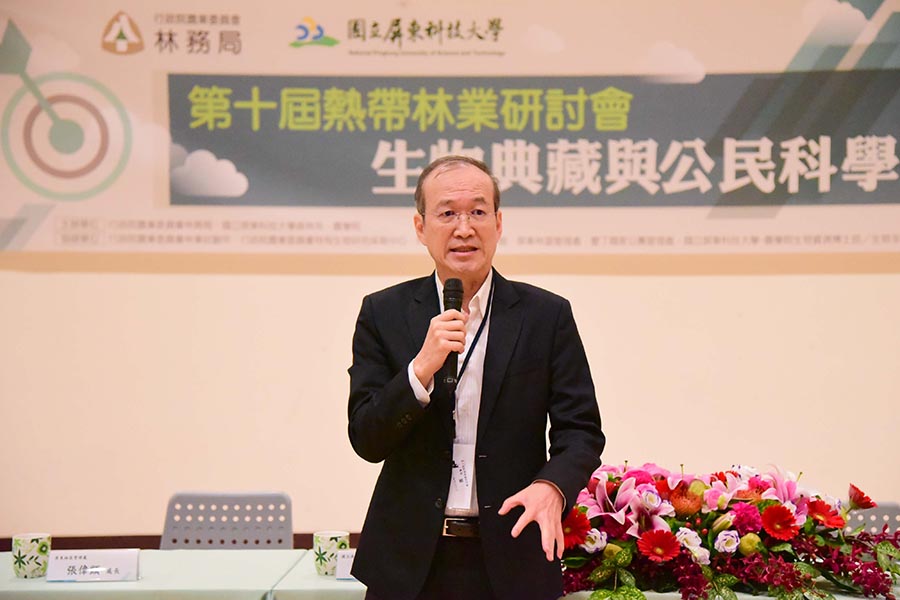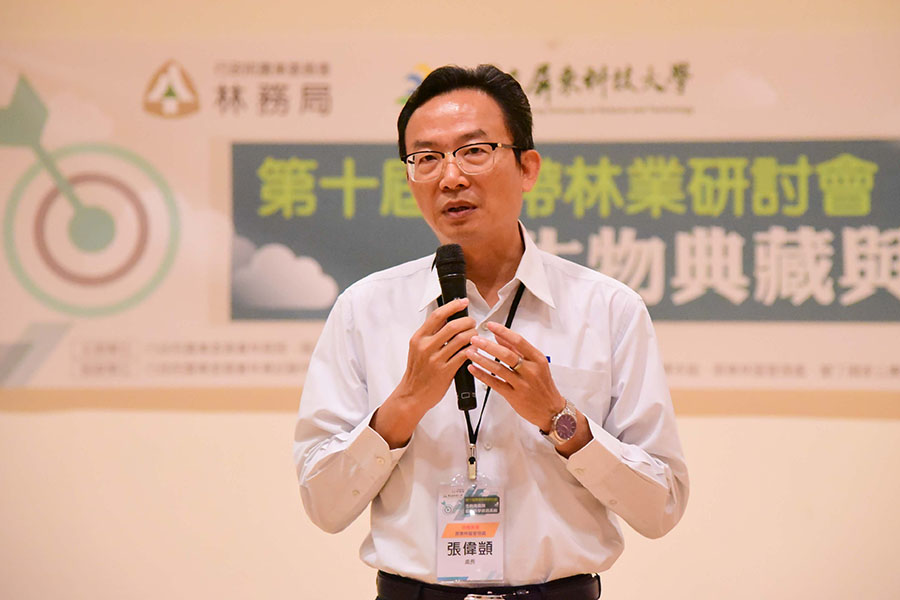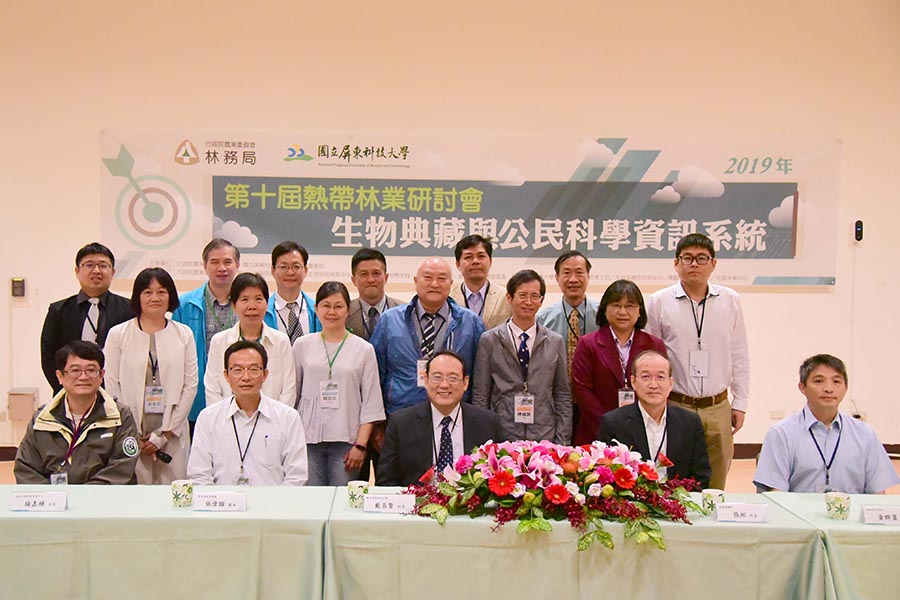In cooperation with the Forestry Bureau (Executive Yuan, COA), on November 29th 2019, the Department of Forestry and College of Agriculture jointly hosted the 10th Tropical Forestry Research Conference on campus at NPUST with focus given to the development and application of a “Biological Data Archive and Public Science Information System”.
Experts were invited to share on recent research results and provide different perspectives on related issues, with a general set of objectives in mind that included: developing a database on Taiwan’s biological materials, furthering biological diversity research and conservation, establishing biological archives, and providing a scientific information system that can be accessed by the general public.
At the conference, NPUST President Chang-Hsien Tai expressed that “the topic of sustainability is very important and is attracting much attention. Based on the special features of the university, NPUST is promoting four main pillars of development, among which include biological conservation. Hopes are that through this research conference, and the sharing of ideas, we will be able to strengthen the integration of different sectors involved and make a strong contribution to sustainable development”. Director Chang Wei-Yi of the Pingtung Forest Management Office, explained that the “public scientific information systems is being built up to provide a platform on which the public sector can access data. This system will help data to flow more smoothly, and thereby contribute to the advancement of related research and discussion”.
Specific attention was also given to individual aspects of the archiving system, including development of the Taiwan Biodiversity Database, the vision and outlook of the Ark Conservation Project, techniques and applications for herbarium collections, and the management and application of the public scientific information system itself.
Speakers were invited to give presentations, orally or in poster form, on such topics as the relationship between forests and humanity, forests and climate change, the green development of forests and forest products, as well ecosystem services, invasive species, and interactions between forests, soils, and water. Attention was also given to ecosystems of mountain communities which are looking to find balance between human and ecological activity. Hopes are that through the conference a clearer idea of how to implement conservation work in situations where development and conservation conflict with one another can be developed. This way the various environmental or conservational agencies will be able to better assist communities make the most out of the local ecological resources while maintaining the surrounding habitats.




